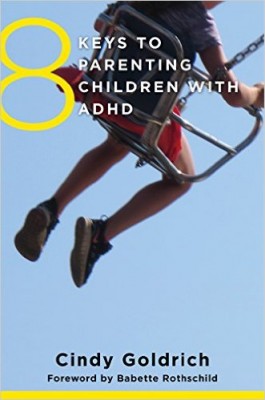
I often speak to parent groups about the challenges of parenting a child with ADHD. One of the most common questions asked is “How can I get my child to do what I ask him to do?” While many parents come to my presentations to hear about how to help children with ADHD focus more, be more organized, manage their time better, and curb their impulsive behavior, it is the discussions around compliance and challenging behavior that truly resonate and engage most parents.
Parents are frustrated that their child with ADHD seems lazy, unmotivated, highly reactive, and often defiant—behaviors that can affect childhood development of sociability and empathy. Despite their best efforts, parents feel at a loss as to how to get their child to be less volatile and more compliant.
There are children born into this world who, regardless of parenting style, are relatively compliant. They may resist or complain, but ultimately they will do as they are asked to do. Sometimes, simply offering a reward or outlining a potential punishment will be enough to prompt them to do as they are expected.
Then there are other children, particularly those with ADHD, who will challenge directives and even well-intended attempts by parents to help and support. I refer to these children as “cactus flowers.” They are beautiful on the inside, but sometimes a bit prickly on the outside. They will not be rushed or molded. In attempts to motivate these children to comply with their expectations, parents often offer rewards or threaten punishments. Yet, these children seem to resist. Even worse, they often become angry, obstinate, or sometimes even abusive.
Why is this? Because “emotional regulation,” the ability to manage ones behavior that involves initiating, inhibiting, or modulating emotions, is at the core of the challenge of ADHD. These kids are not necessarily trying to be difficult or combative. They often lack the skills necessary to deal with flexibility, frustration, with the ability to solve problems effectively. Rewards and punishments do little to teach skills in these instances. The best outcomes evolve through a strong, loving, connected relationship with parents, and effective parenting skills.
 In my book, 8 Keys to Parenting Children with ADHD, I share a cartoon about a mom asking her son, “Why aren’t you doing your homework?” The son is sitting in a chair holding the remote from the TV. Mom stands with hand on hip as she speaks. When I ask participants in my parenting workshops to mimic how the mom might be uttering her line, they often use a voice that expresses anger, frustration, desperation, and even fear.
In my book, 8 Keys to Parenting Children with ADHD, I share a cartoon about a mom asking her son, “Why aren’t you doing your homework?” The son is sitting in a chair holding the remote from the TV. Mom stands with hand on hip as she speaks. When I ask participants in my parenting workshops to mimic how the mom might be uttering her line, they often use a voice that expresses anger, frustration, desperation, and even fear.
What most parents find in this type of interaction is that their child with ADHD will ignore, deny, or argue about the intrusion into their responsibilities. Either a battle ensues or the mom walks away, left to deal with her frustrations, fears, or concerns separate from her child. Lost in this interaction is a genuine conversation about what the child is doing, what the parent’s concern is, and how they might satisfy one another’s needs in the moment.
How we communicate our expectations, concerns, and requests to our ADHD child can have negative consequences. But our communication also has the ability to teach skills, encourage respect, and inspire cooperation. In order for that to happen, parents often need to take a few steps back to focus their attention on building useful communication strategies rather than focusing on compliance.
Defiance Isn’t Always What It Seems in a Child with ADHD
When a parent has clear expectations and a child does not comply, very often the assumption is that the child is intentionally not doing what is expected. When a child has ADHD, there can be a whole host of reasons the child is not complying that may not seem obvious, the least of which may be that the child was so hyper-focused on her own thoughts that she genuinely did not hear her mother’s words.
When we speak in a certain negative tone, or use words that imply that we are judging, we can immediately put a child with ADHD on the defensive. This is a sure way to shut down communication and any chance of reaching a positive resolution. Here are three ideas to consider if interactions with your child are contentious and don’t become solved with simple reminders or significant incentives (either positive or negative):
1. Kids do well if they can.
Almost all of the parents I have worked with at one point or another express, “He’s a good kid, he just….” As parents learn more about the many challenges of kids with ADHD, they begin to realize something I hold as central to my parenting philosophy: kids really do desire to meet, perform, and behave in a positive manner, but they sometimes lack the skills or the ability to solve a problem that prevents them from meeting an expectation. Pushing, bribing, and punishing will do little to rectify the core problem.
2. Sometimes our expectations are not reasonable or realistic.
Between the increased demands on students to learn more material in less time and the ever-increasing demands on all of our time, many parents lose track of the overall expectations placed on children these days. For some kids, especially those with ADHD, or who may struggle to learn, focus, and adjust to difficult situations; expectations placed on them may outstrip their ability to cope. Perhaps some adjustments must be made on the part of the school or the parents rather than just the child.
3. Many adults and children have never learned the art of listening and sharing concerns effectively.
Do you ever find yourself feeling that the person you are speaking with just doesn’t seem to really understand how you feel? Or do you find your friend repeating the same things over and over even though you “get it”? I often sit with couples in my practice that, while both loving their children unconditionally, have a difficult time agreeing on how to parent. Rather than focusing on the issue at hand, I begin by helping each partner express their concerns and then having them reflect back one another’s concerns until each person feels genuinely heard. It is amazing how helpful this step can be. Applying the same strategy for our children with ADHD can teach them that we can solve more problems by engaging in conversation than by yelling, ignoring, or resisting.
So perhaps the question is not simply, “How can I get my child with ADHD to do what I ask him to do?” More importantly, the question may be “Why is my child having a hard time meeting my expectations?” Through improved communication, a shift in our parenting philosophy, and a careful evaluation of our expectations, we can help our children mature into confident, resilient, and competent adults.
For More Information…
For compassionate and effective strategies for raising a child with ADHD, order Cindy Goldrich’s book, 8 Keys to Parenting Children with ADHD.
Photo Credit: Larisa Lofitskaya
Published: September 21, 2015



